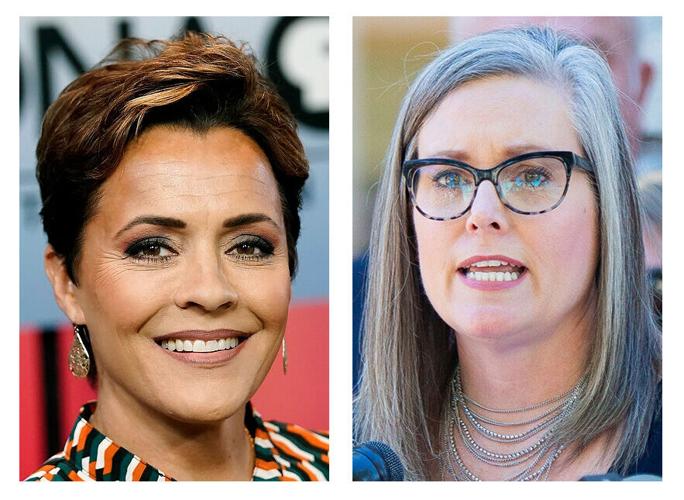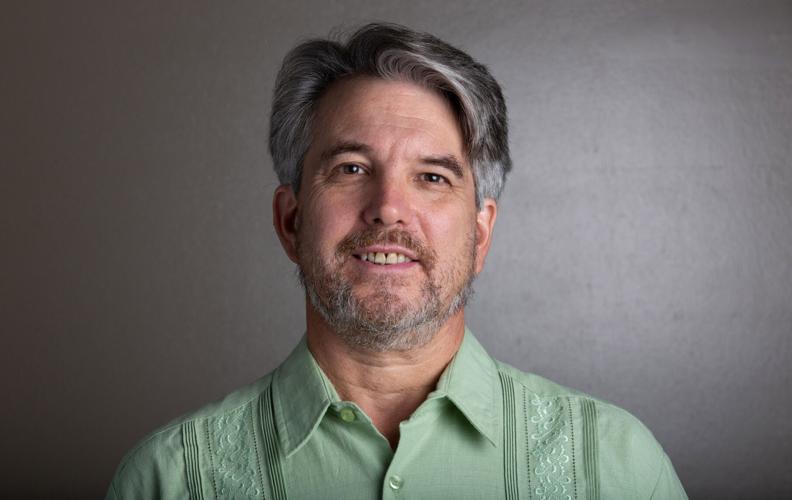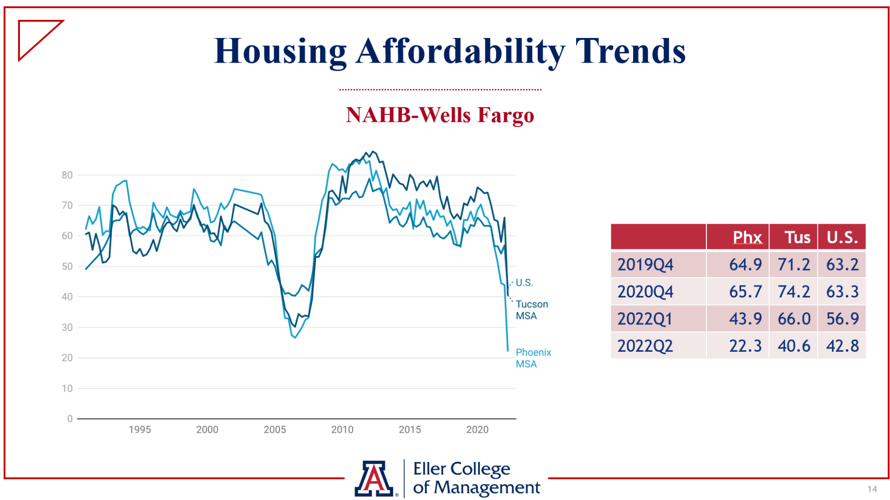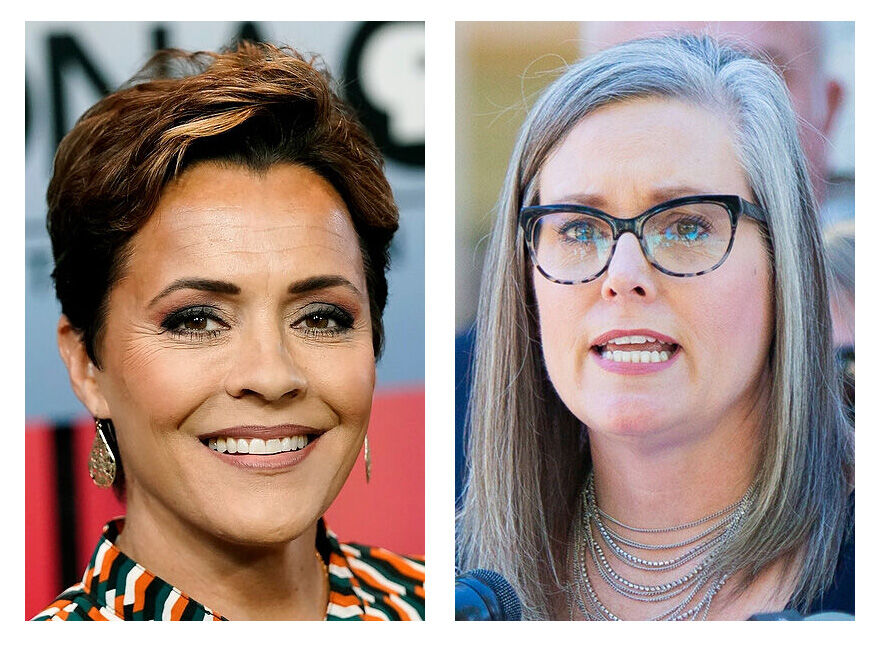As they build their campaigns, candidates tend to accumulate plans for addressing the myriad issues of the moment.
So it is in the Arizona governor's race — with one notable exception.
You can look up Democrat Katie Hobbs' plans for water and the environment, improving education, abortion rights, and immigration and border security. Those and others are right there on her website.
Same for Republican Kari Lake. You can read about her plans for securing the Arizona-Mexico border, preserving rural communities, assuring our water supply and tackling homelessness, among many others.
What you won't read about on their websites or hear about in many campaign appearances is an issue that has emerged as one of the most important in Arizona over the last two years: People suddenly can't afford a home anymore.
This occurred to me Monday as I sat in a meeting in Tucson City Hall of the state Legislature's Housing Supply Study Committee, an ad hoc group meeting across the state before it produces a report later this year.
The candidates are talking about some important issues and some hot-button ones, but on housing itself — relative silence.
Even Lake's plan to tackle homelessness is not so much about housing. She proposes increasing temporary and long-term shelters, banning urban camping and offering services to substances abusers and the mentally ill — under the threat of arrest for those who persist in camping on city streets.

Tim Steller, Metro columnist for the Arizona Daily Star.
(Hobbs noted in her response to Lake's plan that she herself is a former social worker, but Hobbs hasn't released a detailed plan for homelessness. In a statement Tuesday, she said, "homelessness is a tremendously complex problem that requires a leader with experience and vision to solve. I have decades of on-the-ground experience as a social worker, and my first job out of college was working with homeless youth in Phoenix.")
Perhaps the lack of a focus on housing comes from the fact that it's usually considered a municipal issue. Zoning laws, impact fees, permitting standards and the like are dictated by counties and cities.
But in states like California that have long suffered from increasingly unaffordable housing, it's a big political issue.
It should be here, too. Arizona was an unusually affordable state just two years ago. As economist George Hammond of the University of Arizona's Eller School noted at an economic forecast last week, in the fourth quarter of 2020, Tucson and Phoenix both had a higher proportion of affordably priced homes than the national average.
Citing data from the National Association of Home Builders/Wells Fargo Housing Opportunity Index, Hammond pointed out that in late 2020, 74% of the homes sold in the Tucson area were affordable to the median local income, and the rate was 66% in Phoenix, as compared to 63% nationwide.
Come forward a year and a half, to the second quarter of 2022, and those figures have plunged to 41% for Tucson, and 22% for Phoenix, as compared to a 43% nationwide rate.

Economist George W. Hammond noted during a Sept. 6 2022 economic forecast that housing affordability has dropped fast over the last two years in Arizona.
Even before this dismaying drop in affordability, the state Housing Department estimated the state needed about 270,000 new housing units of all types to make the supply match the demand for this fast-growing state.
Now, easing the construction of new housing is usually the business of the city. But as Jim Tofel, managing member of Tofel Dent Construction, told the housing supply meeting Monday, there are things the state can do.
He noted that surging interest rates, inflation, and other factors are making it harder to build affordable housing. One suggestion: The governor should allocate around $500 million in American Rescue Plan money to a low-interest financing initiative.
Another speaker, UA assistant professor of geography Mark Kear, highlighted manufactured homes as a help in addressing the state's housing supply problem.
He noted that state programs could help with replacement of some of Arizona's ancient mobile homes and that in some states, mobile-home park residents are given the right to make a counter-offer if their park is being sold to outside investors who may raise the rent.
Now, the study committee's work did, of course, have a political subtext. The committee was formed instead of a new state law that would have created standardized statewide zoning laws, robbing the cities of their power over this key function.
The committee's work could simply justify a similar effort next legislative session to force cities to approve new housing developments faster.
But whoever replaces Doug Ducey as governor will, of course, have a lot of say about that. One speaker, UA emeritus professor of urban planning Arthur C. Nelson, noted varying statewide shortages of housing and a variety of opportunities to address the problem.
"In my view, we need gubernatorial leadership in striking a balance between those who would undo residential zoning as we know it and those who zealously protect local control," Nelson said in an email Tuesday. "I'm not sure what that ends up being but I'm impressed with Tucson's and Flagstaff's citywide approaches to broadening residential types in single family zones."
In response to my request for a comment, Lake's spokesman, Ross Trumble, sent this statement: "Kari Lake is focused on addressing bottlenecks in supply, labor, and permitting that are making housing more expensive and delaying the construction of desperately needed housing units."
Hobbs' said in a statemet that "corporate bad actors" are to blame for much of the unaffodability.
"Almost one in three homes in our state are bought by investors, not by Arizonans who want to live in them, which is driving up our housing costs. As governor, I will crack down on foreign buyers and large corporations who cause prices to skyrocket, and I will provide home improvement tax credits for those who live in the home they own."
It's strange as we charge into the heart of the campaign season that you have to ask to get any sort of plan to address such an urgent problem.







